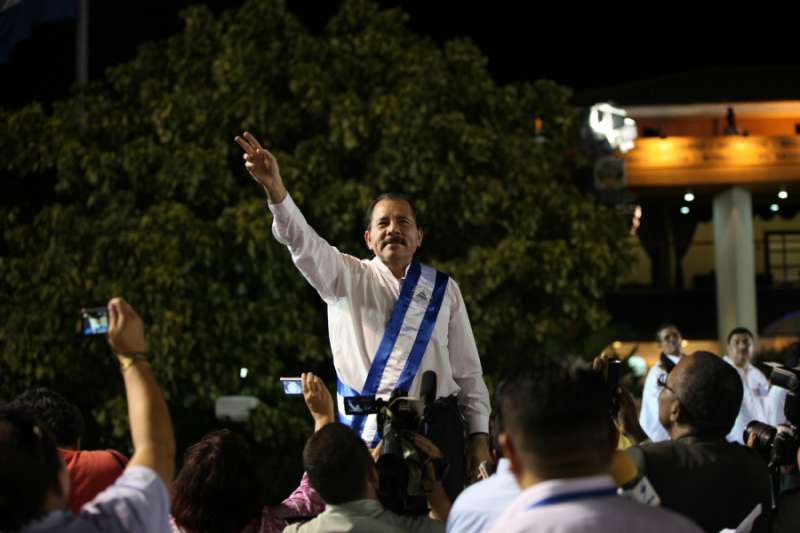Nicaragua's bishops urged president Daniel Ortega Tuesday to comply with a recommendation that he investigate April's violence in order to facilitate talks between the opposition and his government.
The Nicaraguan bishops' conference's May 22 letter encouraged Ortega to create “a mechanism of international investigation of the acts of violence which occurred, with guarantees of autonomy and independence to ensure the right to the truth and duly identify those responsible.”
The Inter-American Commission on Human Rights visited Nicaragua May 17-21 to document human rights violations in four cities and to issue recommendations.
The commission found that since protests began April 18, there were at least 76 deaths and 868 injured, the vast majority “in the context of the protests.” Five of those injured “remain in the hospital in critical condition.” In addition, “438 people were arrested, including students, civilians, men and women human rights advocates and journalists.”
A priest of the Diocese of Matagalpa was wounded by shrapnel May 15 while trying to separate protestors and security forces, the AP reported.
In their letter the bishops stated that “only by fulfilling this recommendation of the IACHR” will the stakeholders be able “to continue making progress toward a good outcome to the national dialogue.”
They also stressed that agreeing to this “becomes imperative for the well being of the nation” and so that the talks produce “fruitful results of truth, justice, freedom and true and lasting peace for all Nicaraguans.”
Finally, the bishops offered their disposition "to collaborate in the path to peace, with justice.”
“We respectfully greet you, imploring the light of the Holy Spirit for you and the intercession of the Virgin Mary so that you can make the best decisions,” they concluded.
On the same day, May 22, the bishop's conference charged in a statement that bishops and priests are being discredited by attacks orchestrated by the government and that they have been receiving death threats through “anonymous social media” posts.
The bishops stated that Nicaragua is currently going through “one of the worst crises in its history after the blatant crackdown by the government, which is trying to evade its responsibility as the main actor in the various attacks.”
Talks to overcome several weeks of anti-government protests and riots in Nicaragua which have been met harshly by security forces began May 16 under the mediation of the Catholic Church.
Protests began April 18 after Ortega announced social security and pension reforms. The changes were soon abandoned in the face of widespread, vocal opposition, but protests have only intensified after more than 40 protestors were killed by security forces.
Demonstrators have called for freedom of expression, an end to violent repression, and for Ortega to step down from office. The Church in the country was quick to acknowledge the protestors' complaints.
Ortega has been president of Nicaragua since 2007, and oversaw the abolition of presidential term limits in 2014.
He was a leader in the Sandinista National Liberation Front, which had ousted the Somoza dictatorship in 1979 and fought US-backed right-wing counterrevolutionaries during the 1980s. Ortega was also leader of Nicaragua from 1979 to 1990.
This article was originally published by our sister agency, ACI Prensa. It has been translated and adapted by CNA.

